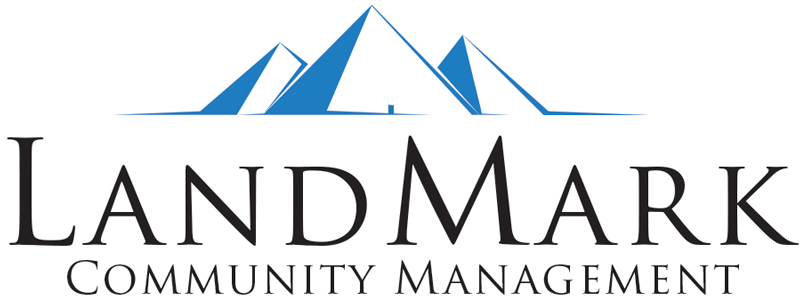The HOA income statement is an important document that can provide insight into the HOA’s operations. It can be a complex financial statement for homeowners, but it’s crucial to understanding the HOA’s financial standing.
What Is the HOA Income Statement?
The HOA statement of income or income statement is a financial statement that shows the community’s income and expenses for a certain period. It breaks down the HOA’s revenue sources and revenue types and depicts all of the HOA’s expenses incurred during the period given.
Parts of the HOA Income Statement
A homeowners association income statement typically consists of four items: operational expenses, gross profit, gains and losses not related to operational costs and net income.
1. Operational Expenses
The operational expenses in an HOA income statement refer to all the community’s regular fees and expenses. They include all the recurring fees that the community needs to stay operational. As such, they typically include regular maintenance costs such as landscaping, pool cleaning, and common area maintenance.
2. Gross Profit
The HOA may be a non-profit organization but still has a gross profit. This item in the income statement refers to all the money the HOA made during a given period. It includes all the revenues before the costs are deducted.
The HOA can obtain this profit from several different accounts. These include HOA dues, collected donations, fines, charges, interest, and asset sales. Some HOAs may also include profits from rent earned from common area rentals.
3. Gains and Losses
The homeowners association may record one-time expenses unrelated to the community’s daily operational costs. These will be recorded under the Gains and Losses category. For example, the community might have added mulch in the HOA playground. That expense is non-recurring and falls under the gains and losses section.
4. Net Income
Every HOA income statement calculates the community’s net income during the period. The HOA must deduct all the community’s expenses from the gross profit to do this. The result is called the net income.
If the result is positive, the community has earned an income for that period. Meanwhile, if the result is negative, it is considered a net loss. This means the community spent more than it earned during that time frame. The board should examine why the community spent more than it earned and how to adjust.
How to Interpret the Income Statement
Interpreting the HOA income and expense statement is not too difficult. The net income or net loss already tells you a lot about the HOA’s finances. If you have a net income, the HOA spends less than it earns. It’s even better if the net income is large, as this allows more room to spend on the HOA’s other needs.
Meanwhile, a net loss is a red flag for the HOA. This means the HOA is losing money, and its earnings cannot compensate for its expenses. As a result, the board should consider cutting back on spending by negotiating with vendors or re-evaluating expenditures.
The board may also review its income sources. Perhaps there are too many delinquent accounts in the community, indicating that the HOA should adopt stricter collection methods. On the other hand, it could indicate that it’s time to increase the HOA’s monthly dues. Perhaps the HOA needs to keep up with rising inflation and the cost of maintenance.
Why Should HOAs Prepare Income Statements?
The governing documents and state law often require the HOA income statement. However, income statements are also helpful for several other things apart from the requirement.
Firstly, they’re more comprehensive than balance sheets. They depict the HOA’s specific income and expenses, allowing the homeowners to understand their sources of income and where the HOA is spending money.
Moreover, the net income or net loss tells the HOA what to do next with its finances. The HOA may need to be more selective about the vendors it hires or the services it offers. HOA boards may also levy larger assessments, make more investments, or sell property to compensate.
How Often Should HOAs Prepare the Income Statement?

It depends on state law. For example, homeowners associations must prepare compiled or audited financial statements every year in Florida. This means Florida homeowners associations can probably get away with preparing only once per fiscal year.
However, HOA boards should also check their governing documents. These documents may require a stricter standard than state law. For example, they may require the board to prepare the income statement every quarter or even every month.
Apart from this, it is a good idea to consider preparing income statements every month. This is because monthly income statements can help communities plan better budgets for the coming year. It also lets communities plan how much money they must collect in monthly dues to stay afloat. However, if the HOA can’t prepare it monthly, quarterly income statements are often a feasible alternative.
HOA Income and Expense Statement Template
Self-managed communities may need a professional management company or accountant to prepare an income statement. Even if the community has an HOA treasurer, they might need to gain the knowledge or expertise to prepare the report. In that case, here’s a simple HOA income and expense statement template to help you get started:
REVENUES
- Assessments: ____________
- Late Fees: ____________
- Bank Interest: ____________
- Miscellaneous Income: ____________
Gross Revenue: ____________
OPERATIONAL EXPENSES
- Common Area Maintenance: ____________
- Management Fees: ____________
- Bank Charges: ____________
- Collection Fees: ____________
- Insurance Expense: ____________
- Postage: ____________
- Cleaning Services: ____________
- Security Services: ____________
- Trash Removal Services: ____________
- Wages: ____________
- Reserve Contribution: ____________
Income Before Gains and Losses: ____________
GAINS AND LOSSES
- Other Gains: ____________
- Other Losses: ____________
Net Gains and Losses: ____________
NET INCOME/LOSS: ____________
An Important Tool for the Community
The HOA income statement is indispensable to assessing a community’s financial health. It helps the residents understand whether the association is turning a profit or loss in a given period. The HOA can see areas for improvement and make decisions based on its findings.
Does your community need professional help to create accurate financial statements? Landmark Community Management offers best-in-class financial management services to HOAs. Call us today at 512-569-5527 or contact us online for more details!
RELATED ARTICLES:


